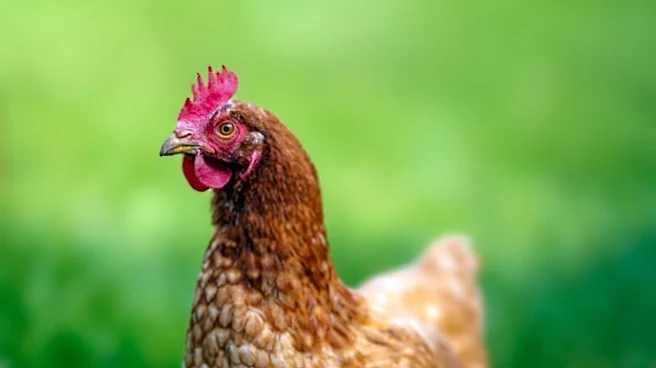What's Happening?
A case of bird flu has been confirmed at a commercial poultry premises near Lakenheath, Suffolk. The Department for Environment, Food and Rural Affairs (Defra) identified the H5N1 virus at the site, leading
to the culling of all birds on the premises. In response, a 3km protection zone and a 10km surveillance zone have been established around the affected area. This is the first confirmed case in the East of England since an outbreak in Norfolk in August. The virus primarily affects birds but can also infect other animals such as foxes, seals, and otters. Defra has stated that the risk to the public is very low, but advises against touching or moving any dead or sick wild birds.
Why It's Important?
The confirmation of bird flu at a commercial poultry farm has significant implications for the agricultural sector and public health. The establishment of protection and surveillance zones aims to prevent the spread of the virus, which could have severe economic impacts if it affects more farms. The culling of birds, while necessary to control the outbreak, represents a loss for the farm and could affect local poultry supply. Public health officials are monitoring the situation closely to ensure the virus does not pose a threat to humans. The incident underscores the importance of biosecurity measures in preventing the spread of infectious diseases in livestock.
What's Next?
The protection and surveillance zones will remain in place until the outbreak is declared over. Authorities will continue to monitor the area for any further cases and ensure compliance with biosecurity measures. Farmers and poultry producers in the region may need to enhance their biosecurity protocols to prevent future outbreaks. Public health advisories will likely continue to emphasize the low risk to humans while encouraging vigilance in reporting sick or dead birds.









